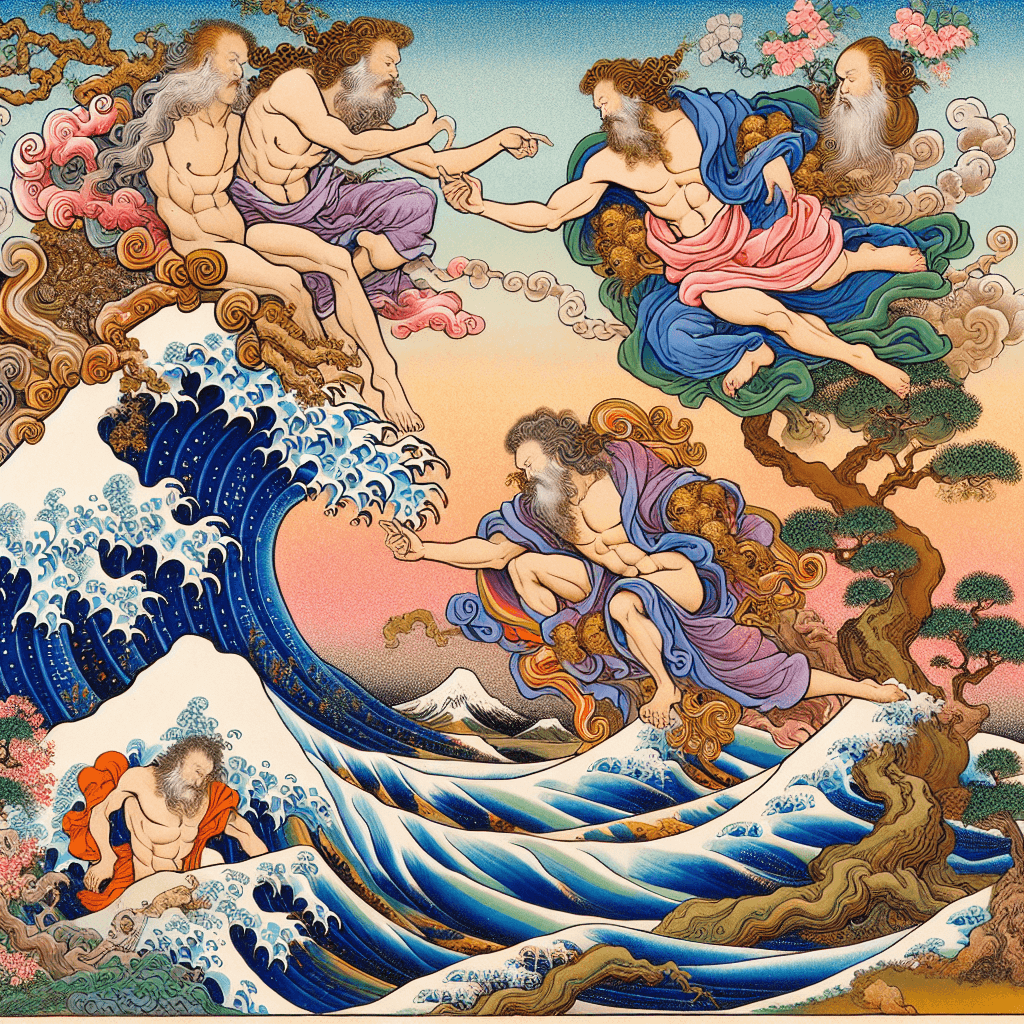

syndu | Jan. 3, 2024, 4:45 p.m.

The story of David and Jonathan, encapsulated in the biblical narrative, has been a subject of fascination and scholarly debate for centuries. Their relationship, often highlighted by David's lament over Jonathan's death, presents a complex interplay of emotions that transcends the typical bonds of friendship. This blog post delves into the evolution of perceptions regarding their companionship, particularly in light of changing views on gender roles and the nature of intimate relationships.
In the ancient world, the bond between David and Jonathan was seen through the lens of political alliances and deep friendship. The covenant they shared was interpreted as a strong fraternal bond, one that was honored above even familial ties. Their relationship was a model of loyalty and mutual respect, qualities highly valued in the patriarchal societies of the time.
During the medieval and Renaissance periods, the story of David and Jonathan was often used to illustrate the ideals of chivalric friendship. In a time when gender roles were rigidly defined, their relationship was seen as an example of how men could express affection and loyalty to one another within the bounds of honor and knighthood. The lament was read as an expression of noble grief, befitting a warrior prince mourning the loss of his closest confidant.
The Enlightenment brought with it a new interest in the individual and personal emotions. The friendship of David and Jonathan was reinterpreted as a celebration of the individual spirit and the capacity for deep emotional connections beyond conventional gender roles. In the Romantic era, their bond was often idealized as a pure and passionate friendship, where the intensity of feeling was seen as a virtue.
In the modern era, particularly with the advent of gender studies and queer theory, the relationship between David and Jonathan has been reexamined through a different lens. Scholars and commentators have explored the possibility of a romantic or homoerotic dimension to their bond, considering the cultural context of their time and the depth of emotion expressed in David's lament. This perspective challenges traditional interpretations and invites a broader understanding of the nature of companionship and love.
Today, the story of David and Jonathan continues to resonate, reflecting society's evolving views on gender and relationships. Their companionship is often cited in discussions about the fluidity of gender roles and the spectrum of human relationships. In a world where the understanding of love and friendship is more inclusive, their story offers a space to explore the complexities of human connection without the constraints of traditional gender expectations.
The evolution of perceptions of David and Jonathan's relationship mirrors the broader societal shifts in understanding gender and companionship. From ancient times to the present day, their story has been reinterpreted to fit the values and beliefs of each era.
David's lament, with its raw outpouring of grief and love, remains a powerful testament to the enduring nature of their bond.As we continue to explore the multifaceted dimensions of human relationships, the story of David and Jonathan provides a rich tapestry of themes that are as relevant now as they were thousands of years ago. Through the ages, their companionship challenges us to consider the depth and diversity of the bonds that connect us all.